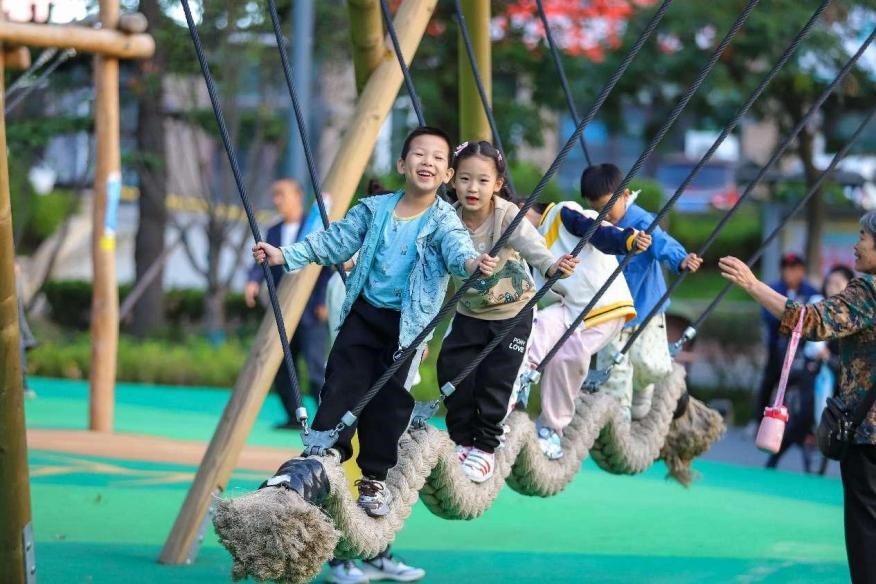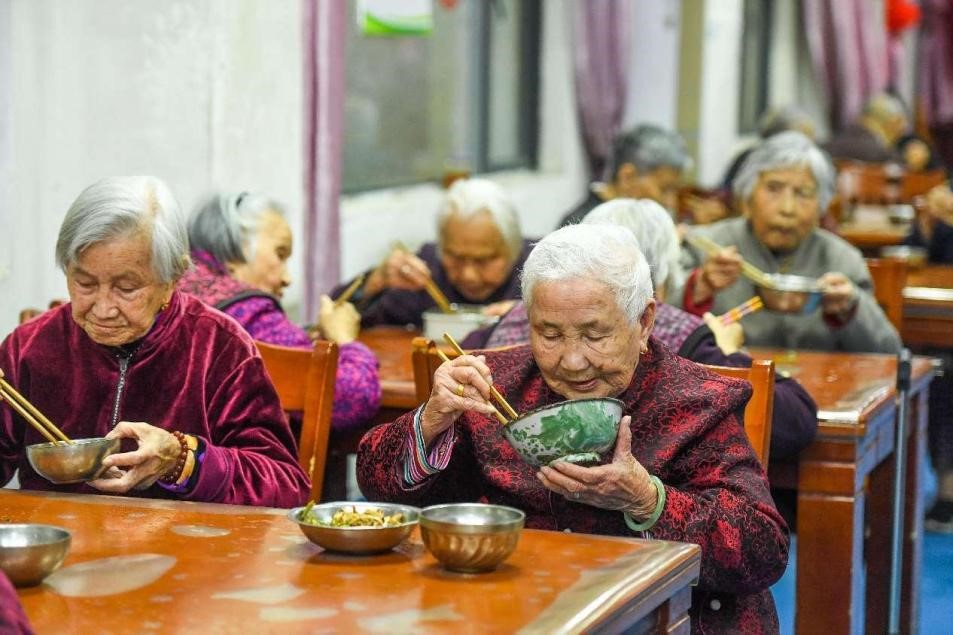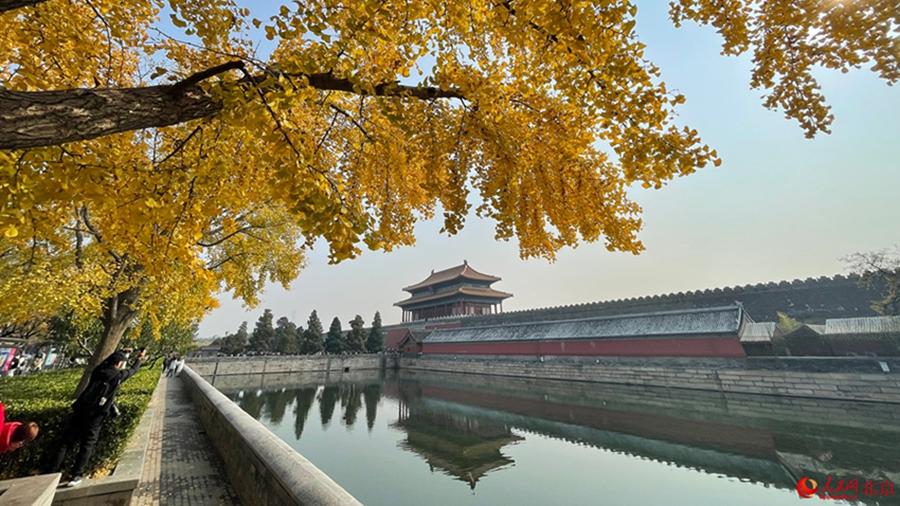China achieves steady progress in human rights

Children play in an ecological park in Qingdao, east China's Shandong province. (People's Daily Online/Zhang Ying)
At the recent 57th session of the United Nations Human Rights Council (UNHRC), over 100 countries voiced their support for China's position and opposed the politicization of human rights, in response to a few countries' attack on China's human rights record driven by political motives.
The voice of justice made by the international community fully proves that the historic achievements of China in human rights protection are widely recognized, and the political manipulation by a few countries garner no support.
The Communist Party of China (CPC) and the Chinese government always put the advancement and protection of human rights on an important position. Applying the principle of universality of human rights to China's national conditions, China has blazed a path of human rights development that is consistent with the trend of the times and suits the nation's conditions.
Especially since the new era, China has made a series of historic achievements in human rights. The country follows a people-centered human rights philosophy, and believes that living a life of contentment is the ultimate human right. It advocates safeguarding human rights with security, promoting human rights with development, and advancing human rights with cooperation.
As the world's largest developing country, China always takes the rights to subsistence and development as the basic human rights of paramount importance, making them a priority in its strategy of human rights development.
China has found a historic solution to ending absolute poverty and steadily improved its ability to ensure basic living needs. In 2023, the urban-rural per capita disposable income ratio was reduced to 2.39. Minimum living allowances were granted to 6.64 million urban residents and 33.99 million rural residents. Besides, the country provided care services to more than 4.72 million individuals with special needs and temporary assistance for 7.42 million times.

Tourists visit a scenic village in Ningbo, east China's Zhejiang province, Oct. 26, 2024. (People's Daily Online/Hu Xuejun)
Today, China's average life expectancy has reached 78.6 years; the maternal mortality ratio has dropped to 15.1 per 100,000; the infant mortality ratio has dropped to 4.5 per 1,000 - all at historical bests.
China makes coordinated efforts to promote all people's rights, takes all human rights as interdependent and inseparable, and promotes the coordinated development of economic, social and cultural rights as well as civil and political rights.
A total of 250 million people in China have received higher education. The average years of education for the workforce aged from 16 to 59 reached 11.05 years. The percentage of days with good air quality across China stood at 85.5 percent, and the proportion of good quality (Class I-III) sections of national surface water was 89.4 percent.
The Legislative Affairs Commission of the Standing Committee of the National People's Congress has set up 45 local legislative outreach offices, in addition to a network of over 6,500 such offices nationwide for the provincial and city-level legislatures.
China deeply recognizes the fundamental role of economic development in advancing human rights protection. It pursues economic development as its central task and promotes human rights with development.
In 2023, the operational mileage of the country's rail network reached 159,000 kilometers, including 45,000 kilometers of high-speed rail. China has also made significant progress in internet infrastructure, with 1.17 billion broadband access ports and a total of 67.12 million kilometers of fiber optic cable as of June 2024, and cumulative mobile internet traffic reaching 160.4 billion GB. The country has nearly 1.1 billion internet users and an internet penetration rate of 78 percent. These achievements provide a solid foundation for enhancing human rights protection.
The rule of law is the most effective guarantee for human rights. China has applied the principle of respect and protection for human rights throughout the processes of lawmaking, law enforcement, justice administration, and observance of the law, to strengthen legal protection of human rights.

Senior residents dine at a canteen of a home-based care services center in Ganyang neighborhood, Zhangshu, east China's Jiangxi province. (People's Daily Online/Zhou Liang)
In 2004, China included the concept of human rights in its Constitution, adding the line "The state respects and safeguards human rights." Based on this constitutional principle, China has enacted, amended, and repealed a series of relevant laws and regulations. Local governments have also made corresponding adjustments to regional laws and regulatory documents, shaping a legal framework for human rights protection with Chinese characteristics.
China upholds the banner of multilateralism, firmly safeguards the purposes and principles of the UN Charter, actively engages in global human rights governance, promotes democracy and rule of law in international relations, and works to enhance the representation and voice of developing countries in international human rights affairs.
China follows the principle of mutual respect and equal treatment in international human rights exchanges, opposes the politicization of human rights and "double standards," opposes interference in other countries' internal affairs under the pretext of human rights, and makes global human rights governance more just, equitable, and inclusive.
China actively promotes dialogue and exchanges in the field of international human rights, advocating for equal exchange and mutual learning among countries and civilizations for common progress.
China has established human rights dialogue or consultation mechanisms with over 20 countries, engaging in human rights dialogues or exchanges with Western countries and regional organizations such as Germany, Switzerland, Hungary, Greece, and the European Union. It has also conducted human rights consultations with developing countries and regional organizations such as Russia, Egypt, South Africa, Brazil, Malaysia, Pakistan, Belarus, Cuba, and the African Union.
Chinese social organizations are actively engaged in and participating in international human rights dialogues and exchanges in areas such as poverty alleviation, environmental protection, education, health, and women and children's development, hosting international conferences such as the Beijing Forum on Human Rights and the China-Europe Seminar on Human Rights, to enhance mutual understanding among different countries on human rights issues.
(Chang Jian is the director of the Center for the Study of Human Rights, Nankai University.)
Photos
Related Stories
- Chinese, European scholars discuss human rights issues
- China-led resolution on women's rights wins broad support at UNHRC
- U.S. political manipulation of human rights issues unpopular worldwide: Chinese FM
- Respecting, safeguarding human rights unremitting pursuit of Chinese government: FM
- 1st China-LAC human rights roundtable held in Brazil
Copyright © 2024 People's Daily Online. All Rights Reserved.









